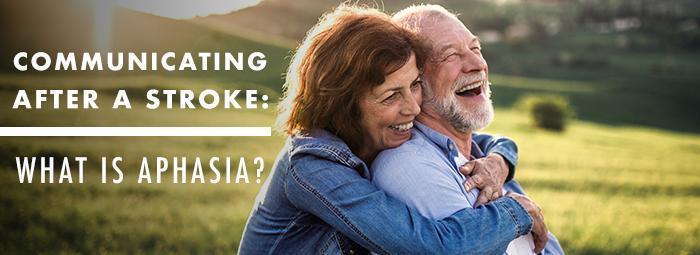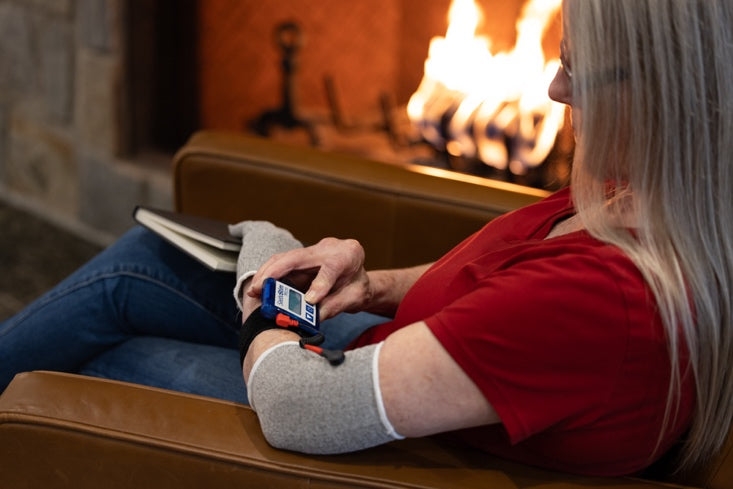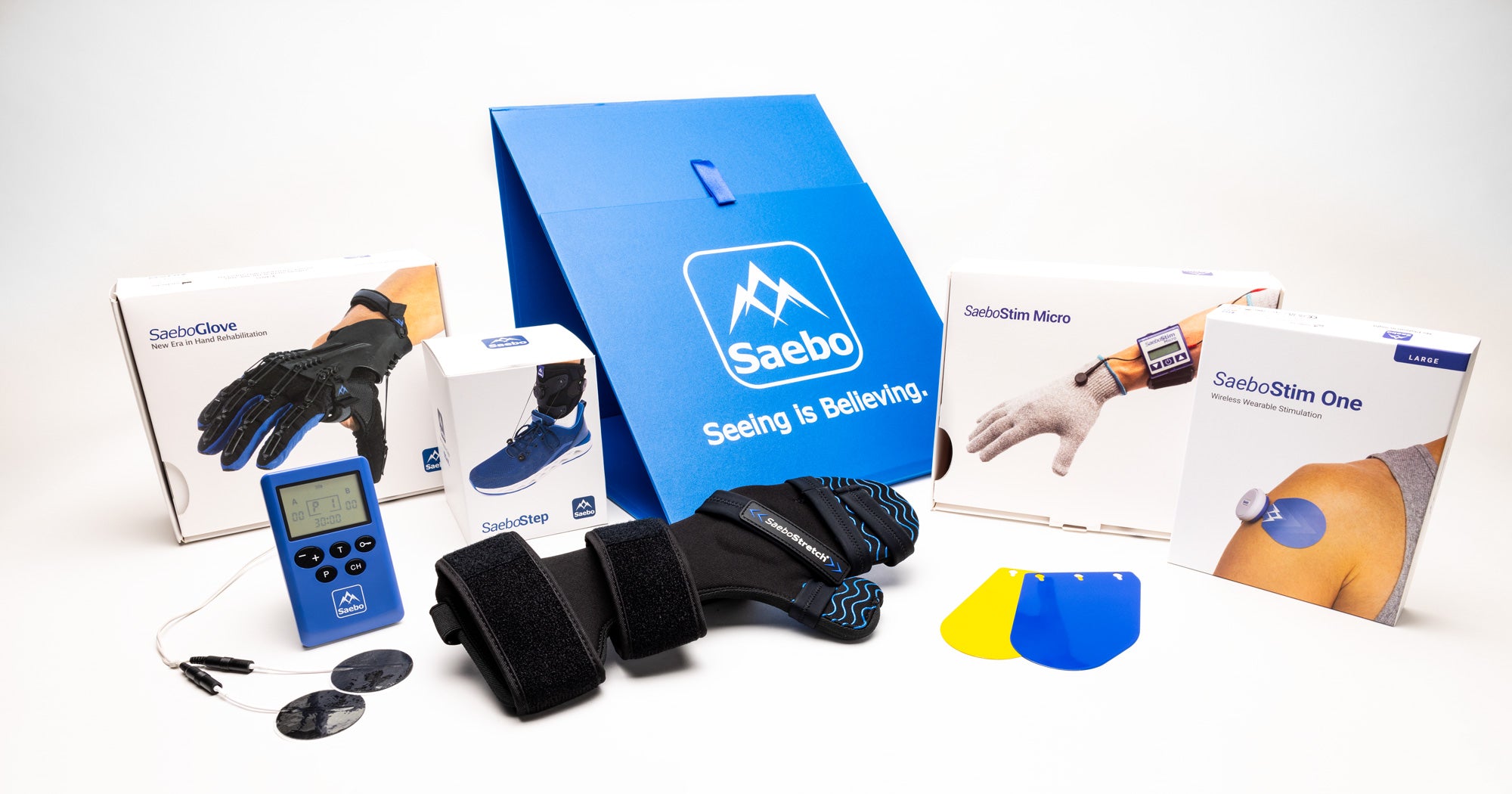Communicating After a Stroke: What Is Aphasia?

 Currently, strokes are one of the leading causes of long-term disability around the globe. Millions of stroke survivors struggle with a range of after effects that impact not only their physical capabilities but, at times, their ability to communicate. It’s estimated that up to 40 percent of stroke survivors will experience aphasia, a disorder that impairs a patient’s ability to process language, impeding speech, reading, and writing. In some instances, these communication and speech impairments may be temporary and fade over time. However, for most patients, restoring or improving communication skills requires intensive rehabilitation. In the past, it was commonly believed that speech improvement was only possible during the first few weeks of recovery, however, it is now known that it is possible to improve speech months and possibly even years after a stroke. With an effective stroke treatment strategy and consistent practice, the brain can be retrained to compensate for communication deficits. In this post, we will discuss the different types of aphasia and also how to improve speech after a stroke.
Currently, strokes are one of the leading causes of long-term disability around the globe. Millions of stroke survivors struggle with a range of after effects that impact not only their physical capabilities but, at times, their ability to communicate. It’s estimated that up to 40 percent of stroke survivors will experience aphasia, a disorder that impairs a patient’s ability to process language, impeding speech, reading, and writing. In some instances, these communication and speech impairments may be temporary and fade over time. However, for most patients, restoring or improving communication skills requires intensive rehabilitation. In the past, it was commonly believed that speech improvement was only possible during the first few weeks of recovery, however, it is now known that it is possible to improve speech months and possibly even years after a stroke. With an effective stroke treatment strategy and consistent practice, the brain can be retrained to compensate for communication deficits. In this post, we will discuss the different types of aphasia and also how to improve speech after a stroke.
Loss of Speech After a Stroke: Different Types of Aphasia:
The specific location and severity of the stroke will determine the conditions and deficits survivors can expect to face. The left hemisphere of the brain is involved in language and communication, so a stroke on the left is likely to result in aphasia and other speech/language impairments. These impairments range from subtle to severe and may affect some or all of a patient’s communication skills such as speaking, listening, reading, and writing. It’s important to remember that there are multiples types of aphasia a patient may develop after a stroke, and not every patient will display every symptom.What is anomic aphasia?
Patients experiencing anomic or amnesia aphasia may have trouble remembering or using the appropriate names for certain objects, animals, locations, and events. This is considered to be a mild type of aphasia, but it can still be extremely frustrating.What is Broca's aphasia?
Individuals suffering from Broca's aphasia (also known as expressive aphasia) often have difficulty communicating verbally at all. Stroke survivors with expressive aphasia may be unable to follow direction and experience great difficulty creating full sentences, often omitting (or misusing) words key to the meaning of the sentence. Broca’s aphasia sufferers are often able to fully comprehend what others are saying and read language proficiently, though they may have difficulty writing.What is Wernicke's aphasia?
Wernicke's Aphasia, or receptive aphasia, is the form of aphasia that impairs the ability to grasp the meaning of spoken words and sentences. Often times, the ability to produce speech is not affected. They can often speak using grammatically correct sentences; however, individuals with receptive aphasia are unable to make sense of these words. They may fail to realize they are using the wrong words and are not fully aware that what they say doesn’t make sense.What is global aphasia?
Sadly, a complete or near-complete loss of speech after a stroke is also common. Global aphasia is aphasia in its most severe form, combining both expressive and receptive aphasia. Global aphasia often results from severe damage to the left hemisphere of the brain. Stroke survivors suffering from global aphasia may have difficulty understanding the speech of others and producing even individual words aloud. These diminished communication skills can be difficult for stroke survivors and their loved ones, however, it is possible for patients to recover fully from post-stroke speech deficits with the latest aphasia therapy options.Aphasia Treatment: How to Recover Speech After a Stroke
The phenomenon of cortical plasticity, or neuroplasticity, makes it entirely possible to retrain the brain after a stroke and repair communication impairments. Neuroplasticity is the brain’s ability to reorganize itself following a traumatic injury such as a stroke and form new neural connections. Task training exercises stimulate the brain to create these new neural connections in the healthy tissues surrounding the damaged area. As with all stroke rehabilitation strategies, repetition is key to promoting neuroplasticity, allowing these new neural connections to form and relieve speech deficits. Today, speech therapy is one of the most common aphasia treatments. During speech therapy, a speech-language pathologist will guide the patient through exercises and teach new skills to compensate for language deficits. This speech-language therapy for aphasia may involve practicing word retrieval strategies and even engaging in conversational role-play to improve day-to-day language skills. The speech-language pathologist may also recommend aphasia group therapy to allow patients to practice these strategies with others. During therapy sessions, and even at home, patients are often encouraged to use props and draw or write on paper to convey thoughts and feelings. Additionally, there are many apps and computer programs that can help patients relearn words and reach their speech therapy goals for aphasia. It’s imperative to reinforce aphasia therapy practices at home and in between treatment visits. At-home speech therapy activities for stroke patients such as word games can be especially useful for this purpose, as can activities such as reading a story aloud or singing along with a favorite song. In fact, music can play a significant role in the recovery process for many stroke survivors. Over the last few decades, speech therapy has expanded to include innovative and effective options such as music therapy. While the left half of the brain may control many speech and communication functions, the right half controls important components of rhythm and melody. Using this principle, Melodic Intonation Therapy harnesses the capabilities of the unaffected side of the brain to restore lost function. When using music intonation therapy for aphasia, patients stimulate portions of the right side of the brain by singing, thereby assuming control of some of the diminished speech and communication functions of the left hemisphere. Another popular aphasia treatment is constraint-induced language therapy (CILT). CILT aphasia treatment is designed to help individuals fully utilize verbal communication rather than relying on “compensatory strategies” such as writing, body language, and gestures. This approach forces patients to focus on verbal communication to overcome speech deficits, focusing first on short verbal exchanges and then slowly progressing toward more extensive communication. Lastly, as a strategy, it’s important for a stroke survivor’s loved ones to avoid inadvertently sabotaging the survivor’s progress. Living with aphasia can be difficult for everyone involved, and it’s natural to want to assist survivors in communicating their thoughts. However, attempting to finish aphasia patients’ sentences for them ultimately does more harm than good. Instead, friends and family members can aid in the recovery process by being patient and encouraging the survivor to complete verbal communications at a slow and steady pace. Here at Saebo, we are committed to stroke support and recovery for all survivors and their families. Saebo offers a wide range of products that combine cutting-edge technology with evidence-based rehabilitation techniques. Our offerings and network of Saebo-trained therapists can help you or a loved one obtain all the necessary tools to maximize stroke recovery. At Saebo, we also realize that each case of aphasia is different, and therapies for the loss of speech after strokes will vary from survivor to survivor. Today, it is possible to recover from stroke communication impairments with the right knowledge, support system, and stroke recovery expertise.All content provided on this blog is for informational purposes only and is not intended to be a substitute for professional medical advice, diagnosis, or treatment. Always seek the advice of your physician or other qualified health provider with any questions you may have regarding a medical condition. If you think you may have a medical emergency, call your doctor or 911 immediately. Reliance on any information provided by the Saebo website is solely at your own risk.
All content provided on this blog is for informational purposes only and is not intended to be a substitute for professional medical advice, diagnosis, or treatment. Always seek the advice of your physician or other qualified health providers with any questions you may have regarding a medical condition. If you think you may have a medical emergency, call your doctor or 911 immediately. Reliance on any information provided by the Saebo website is solely at your own risk.




